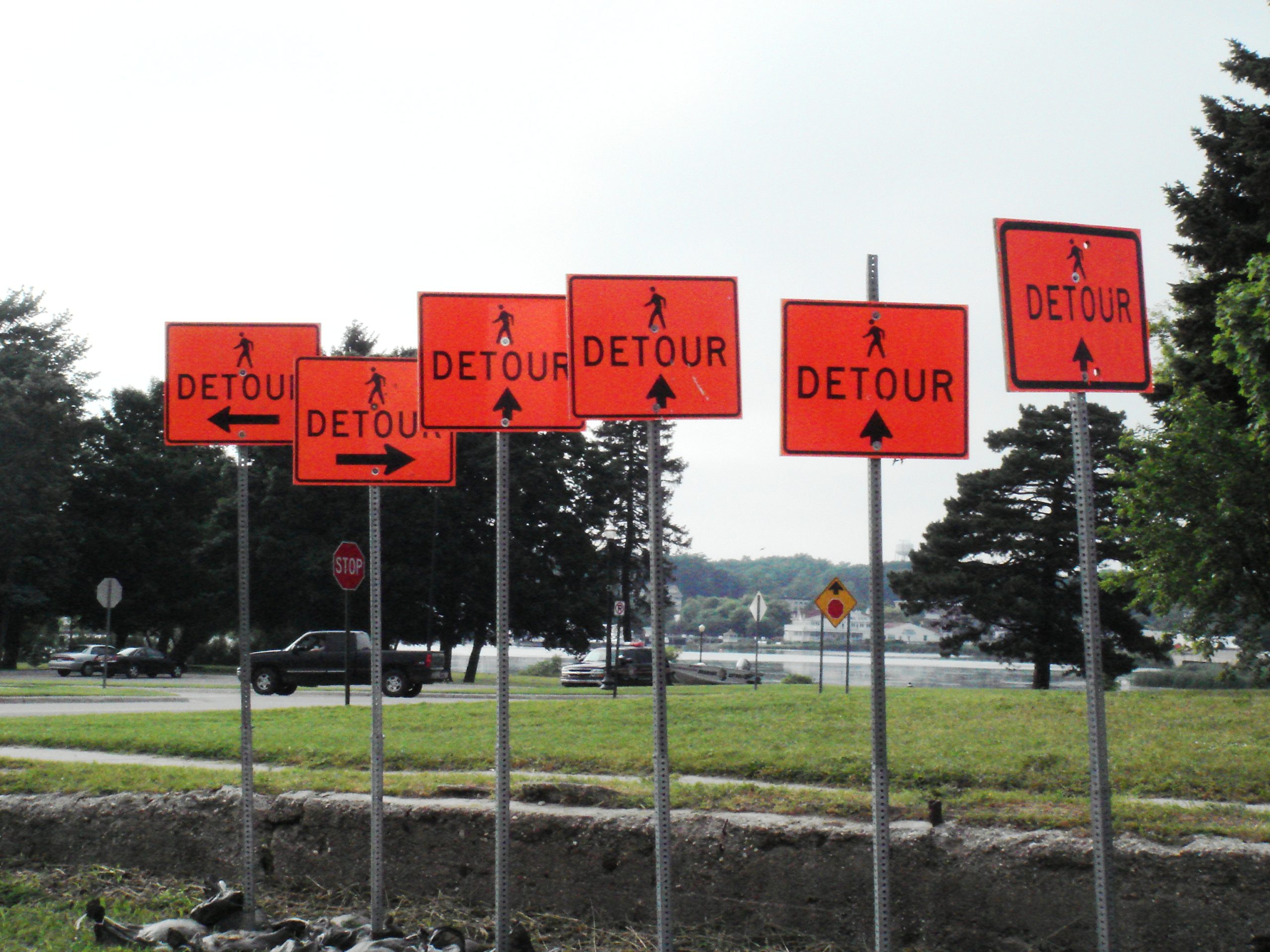 If you slip and fall over an item that has fallen at a store, you might think that you will be able to recover for your injuries in a lawsuit against the store. However, it is not enough to simply show that you slipped and fell. Instead, you must show that the store knew about or created the condition that caused you to slip and fall. Because Lilly Edwards could not show this, the court dismissed her lawsuit against a Baton Rouge, Louisiana, Dollar General store.
If you slip and fall over an item that has fallen at a store, you might think that you will be able to recover for your injuries in a lawsuit against the store. However, it is not enough to simply show that you slipped and fell. Instead, you must show that the store knew about or created the condition that caused you to slip and fall. Because Lilly Edwards could not show this, the court dismissed her lawsuit against a Baton Rouge, Louisiana, Dollar General store.
While shopping at a Dollar General store in Baton Rouge, Louisiana, Edwards tripped on a box that she later described as a poster board. She claimed this poster board fell into the aisle where she was shopping. Edwards claimed she tripped on it as she went around the corner, which caused her to fall and injure her knee. After this fall, Edwards sued the Dollar General store. Dollar General filed a motion for summary judgment, which the trial court granted. The trial court held that Edwards could not prove that Dollar General had known about the hazardous condition that resulted in her fall. Without this knowledge, Dollar General could not be found liable. Edwards then appealed the trial court’s grant of summary judgment to the Louisiana First Circuit Court of Appeal.
Summary judgment is appropriate when the evidence shows no genuine issues of material fact. See La. C.C.P. art 966(B)(2). Under Louisiana law, a store owner such as Dollar General owes a duty to people who come to shop there to exercise reasonable care to ensure its floors are kept in a reasonably safe condition and that the store has no hazardous conditions. See La. R.S. 9:2800.6. Here, Edwards had the burden of proving: (1) the poster board that she tripped over was an unreasonable risk of harm; (2) Dollar General had either created or had knowledge of the poster board on the floor; and (3) Dollar General did not exercise a reasonable standard of care.
 Insurance Dispute Lawyer Blog
Insurance Dispute Lawyer Blog


 Employment law disputes are very fact-specific inquiries. Judges, especially workers’ compensation judges, are typically well-equipped to handle these cases. But when a judge mishandles the facts or misinterprets the law having an excellent attorney in your corner helps in the appeal process. For the
Employment law disputes are very fact-specific inquiries. Judges, especially workers’ compensation judges, are typically well-equipped to handle these cases. But when a judge mishandles the facts or misinterprets the law having an excellent attorney in your corner helps in the appeal process. For the  Everyone can picture a grocery store on a busy day. The aisles are congested, and workers are hurrying to replace products on the sales floor. There may be stocking carts blocking walkways. Who is responsible if a shopper trips over a worker’s cart and injures herself? What about if the worker and the shopper knew the cart was there?
Everyone can picture a grocery store on a busy day. The aisles are congested, and workers are hurrying to replace products on the sales floor. There may be stocking carts blocking walkways. Who is responsible if a shopper trips over a worker’s cart and injures herself? What about if the worker and the shopper knew the cart was there? In a bizarre turn of events, an attempt to get unpaid wages from a Terrebonne Parish video store owner turned violent and led to the appeal discussed below. The appeal delved into the standards that Louisiana courts consider when it comes to repeated violations of their pretrial orders. The case below answers the question; Can a Louisiana court impose a default judgment for failure to obey pretrial orders?
In a bizarre turn of events, an attempt to get unpaid wages from a Terrebonne Parish video store owner turned violent and led to the appeal discussed below. The appeal delved into the standards that Louisiana courts consider when it comes to repeated violations of their pretrial orders. The case below answers the question; Can a Louisiana court impose a default judgment for failure to obey pretrial orders? Recovering from an automobile collision is already a difficult journey. Sometimes physical recovery does not occur in a straight line, and intermediate accidents can complicate the process. This was especially true for Alexandria resident Mr. Maricle.
Recovering from an automobile collision is already a difficult journey. Sometimes physical recovery does not occur in a straight line, and intermediate accidents can complicate the process. This was especially true for Alexandria resident Mr. Maricle.  The lawsuit process can be expensive between investigation, preparation for trial, and the trial itself. This is on top of the emotional rollercoaster of events that have given rise to a lawsuit in the first place. Unfortunately, sometimes a plaintiff may lose at trial and be hit with all the litigation costs for both parties. The following case shows how those costs are within the court’s discretion.
The lawsuit process can be expensive between investigation, preparation for trial, and the trial itself. This is on top of the emotional rollercoaster of events that have given rise to a lawsuit in the first place. Unfortunately, sometimes a plaintiff may lose at trial and be hit with all the litigation costs for both parties. The following case shows how those costs are within the court’s discretion. Everyone wants to emerge victorious after their day in court, but occasionally the jury will refuse to award the judgment you deserve. When a person loses their case at trial, they can appeal it to a higher court. The appeal process allows for a narrow reconsideration of a case to assure that the lower court got to the correct answer; if the appeals court finds that the lower court did not get the correct answer, they can amend the lower court’s judgment, including the calculation of damages.
Everyone wants to emerge victorious after their day in court, but occasionally the jury will refuse to award the judgment you deserve. When a person loses their case at trial, they can appeal it to a higher court. The appeal process allows for a narrow reconsideration of a case to assure that the lower court got to the correct answer; if the appeals court finds that the lower court did not get the correct answer, they can amend the lower court’s judgment, including the calculation of damages.  Hospital admission can often be a terrifying experience, but even more so is an ICU admission. Your life is literally in the hands of hospital doctors and nurses. But what happens if you sustain injuries unrelated to your original illness or injury while in the ICU? A recent patient at Mercy Regional Medical Center in Ville Platte, Louisiana, was left with no legal recourse after sustaining multiple ant bites during her ICU stay.
Hospital admission can often be a terrifying experience, but even more so is an ICU admission. Your life is literally in the hands of hospital doctors and nurses. But what happens if you sustain injuries unrelated to your original illness or injury while in the ICU? A recent patient at Mercy Regional Medical Center in Ville Platte, Louisiana, was left with no legal recourse after sustaining multiple ant bites during her ICU stay.  Before taking on one of the nation’s largest, leading automotive manufacturing companies, it is essential to consult an excellent attorney with knowledge of the Federal Court system. The importance of following the deadlines set by the Court in that system cannot be understated. Unfortunately, the lesson of how critical it is to follow court deadlines came to bear a harsh reality for the children of two deceased car accident victims in the following case.
Before taking on one of the nation’s largest, leading automotive manufacturing companies, it is essential to consult an excellent attorney with knowledge of the Federal Court system. The importance of following the deadlines set by the Court in that system cannot be understated. Unfortunately, the lesson of how critical it is to follow court deadlines came to bear a harsh reality for the children of two deceased car accident victims in the following case.